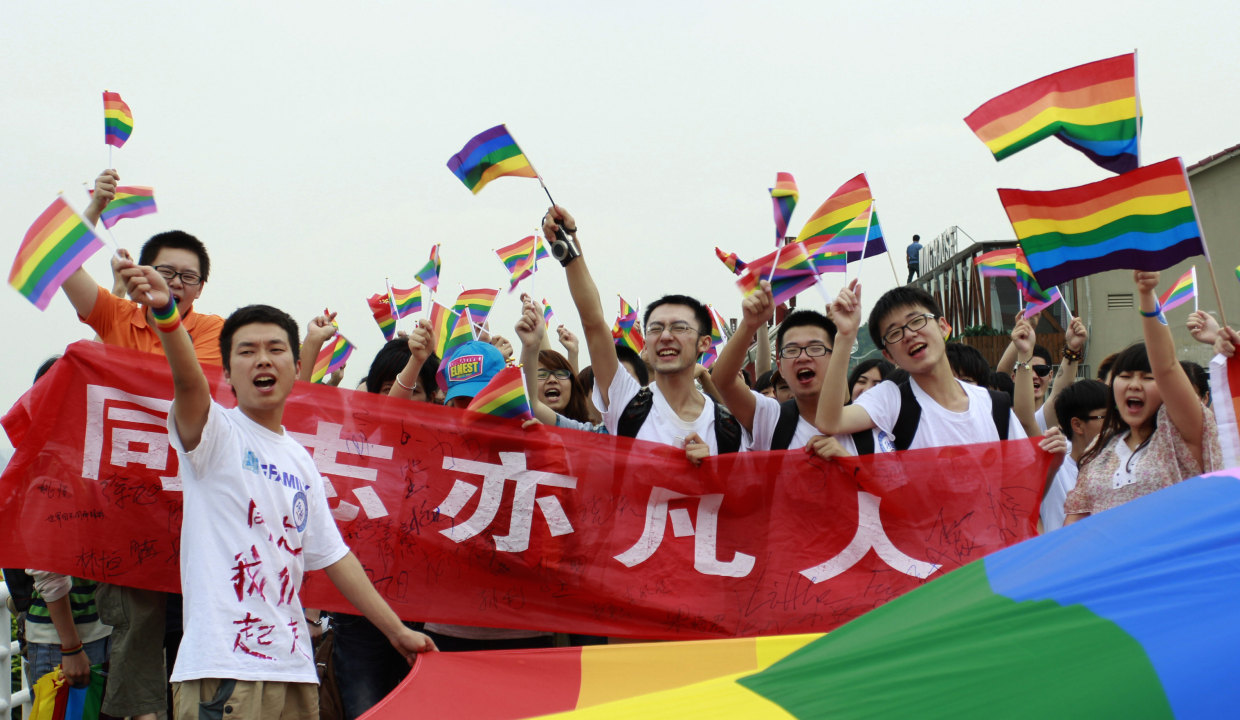
In recent years, the LGBTQ+ community in China has faced increasing pressures and restrictions under the leadership of Xi Jinping, as reported by Radio Free Asia.
This crackdown comes in stark contrast to the progress seen in Taiwan, where same-sex marriage was legalized in 2019, marking a historic step for LGBTQ+ rights in Asia.
Members of the LGBTQ+ community in China have observed a noticeable decline in the acceptance and visibility of sexual minorities.
Public displays of LGBTQ+ symbols, such as the rainbow flag, have been effectively banned, with gay bars and LGBTQ+ events facing closures and cancellations.
This shift represents a significant change from the previously more vibrant LGBTQ+ scene in major Chinese cities.
The situation has been further exacerbated by specific incidents, such as the removal of the LGBTQ+ anthem “Rainbow” by Taiwanese pop star A-Mei from her Beijing concert setlist in August 2023.
Similarly, another song that became an anthem for the LGBTQ+ community, “Womxnly” by Jolin Tsai, was removed from her concert in Changsha. These acts of censorship highlight the tightening restrictions on LGBTQ+ expressions in the country.
ALSO READ: China’s Industrial Profits Decline Again in 2023 Amid Economic Challenges
The crackdown is not limited to the suppression of LGBTQ+ symbols and events but extends to the harassment and detention of individuals based on their sexual orientation or gender identity.
Instances of police harassment and the detention of LGBTQ+ activists have been reported, further intensifying the atmosphere of fear and repression within the community.
Legal challenges faced by LGBTQ+ individuals, such as the refusal of the Beijing No. 1 Intermediate People’s Court to accept an administrative lawsuit filed by two lesbian students, underscore the legal obstacles and discrimination faced by the community.
The court’s decision, citing national security concerns, exemplifies the broad and often arbitrary use of legal mechanisms to suppress LGBTQ+ advocacy and expression.
The broader implications of these actions point to a concerning trend of regressing LGBTQ+ rights in China, fueled by the government’s apprehension of civil organizations and movements that could challenge party rule.
The contrast between Taiwan‘s advancement of LGBTQ+ rights and China‘s crackdown highlights the diverging paths in addressing LGBTQ+ issues in the region.
As the LGBTQ+ community in China navigates these challenges, the hope for recognition and equality seems increasingly distant, overshadowed by the government’s efforts to conform to traditional values and suppress diversity.
The situation calls for international awareness and solidarity to support the rights and freedoms of LGBTQ+ individuals in China and beyond.






